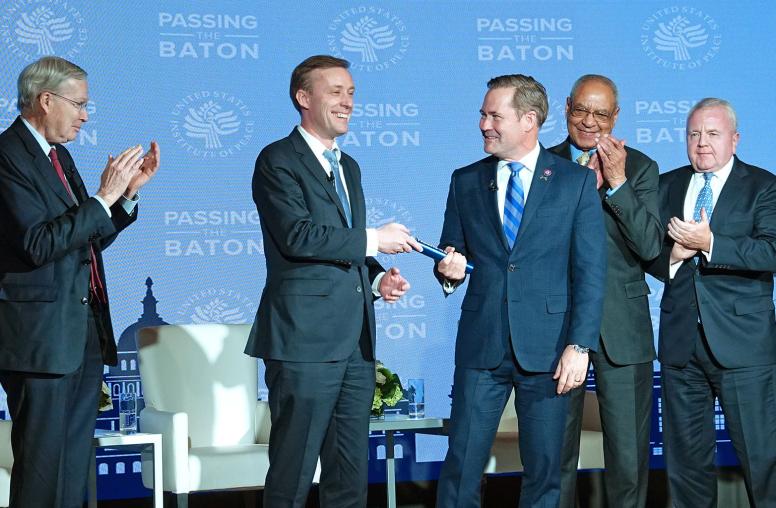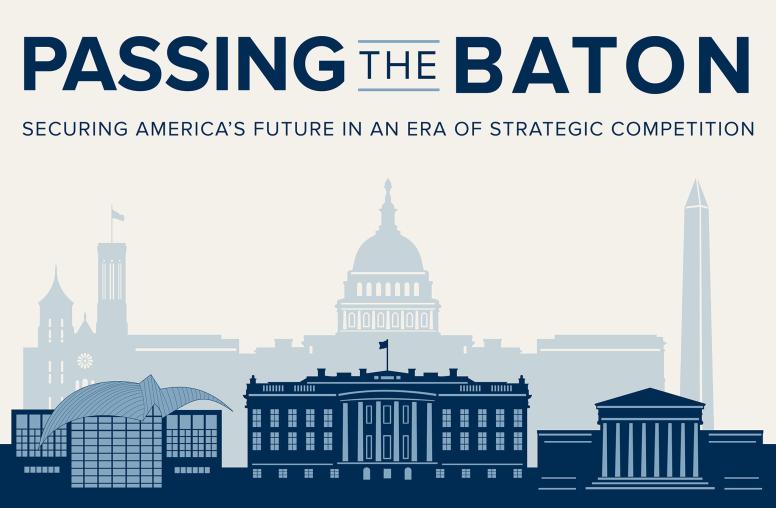Institute Mourns Passing of Former Board Member and Friend Seymour Martin Lipset

(Photo Courtesy: Hoover Institution)
Seymour Martin Lipset, one of America's most distinguished social scientists and a long-time Institute board member and former vice chair, has passed away. He had been ailing in recent years, but his death on December 31 nonetheless caught Institute staff and board members by surprise.
"Marty was a nonconformist shining light in social science," said Ambassador Max Kampelman, whose friendship with Lipset spanned decades, including overlapping tenures as Institute board members. "He will be deeply missed."
Pamela Aall, director of education programs at the Institute, said that Lipset was always extremely personable and interested in talking to staff. "He was engaged by anyone who had an interesting idea, and brought a very wide perspective to board meetings."
Lipset wrote or edited more than thirty academic volumes, which have been translated into eighteen different languages. He is the only person ever to have been president of the American Sociological Association and the American Political Science Association. His awards and honors are legion: the Townsend Harris and Margaret Byrd Dawson Medals for significant achievement, the Leon Epstein Prize in Comparative Politics by the American Political Science Association, the Marshall Sklare Award for distinction in Jewish studies, and the Helen Dinnerman Prize by the World Association for Public Opinion Research.
Chet Crocker, who served as Institute chairman during Lipset's tenure, said that the Institute was blessed to have had such an intellectual giant on the Institute's board. "He was a big picture intellectual, connecting the dots between such disparate fields as economic development and the rule of law or the development of political parties, and he did it with such ease that you wanted to just sit back and listen to him talk."
Lipset was elected to various honorific societies in the United States and abroad: the National Academy of Sciences, the American Philosophical Society, the National Academy of Education, and the American Academy of Arts and Sciences.
As a sociologist and political scientist, Lipset spent much of his academic career explaining America to Americans—writing on matters as diverse as labor union organization, public behavior, and the cultural and social conditions favorable to the emergence of democracy.
"He wrote extensively about the lessons the United States might offer to the new nations of the world, and was a pioneer in what we would later call the field of 'nation building,'" said former board chair Elspeth Rostow, who came to know Lipset from her time on the board. "He understood that there were elements of our experience that new nations could learn from, even as he warned about the dangers of trying to recapitulate the American experience in remote places with different cultural roots."
Lipset began college intending to become a dentist, but at City College in New York in the 1940s he asked himself why no socialist movement had ever succeeded in the United States. That question sparked a life-long interest in American exceptionalism—the qualities that make the United States different from other Western, developed countries.
But American exceptionalism—which was also the title of his last book—is a double-edged sword, Lipset explained. It fosters economic dynamism, promotes tolerance for immigrants, and emphasizes individual initiative and personal responsibility. But it also accounts for America's moralism, its tolerance of vast disparities in wealth, its high incidence of crime, and its disregard for the common good.
Lipset came to hold endowed professorships at Harvard and Stanford before ending his career as the Hazel Professor of Public Policy at George Mason University.
Although primarily an academic, Lipset was extensively involved in public affairs as a board member or consultant for many major governmental and nongovernmental organizations, including the U.S. Board of Foreign Scholarships, the Committee for Labor Law Reform, the Committee for an Effective UNESCO, and the National Endowment for the Humanities, the National Humanities Institute, the National Endowment for Democracy, and the American Jewish Committee. A stroke in 2001 substantially slowed his prolific energies.
"Marty Lipset brought a wide-ranging and creative intellect, sound judgment, and exceptional stature to the Institute," said Institute President Richard Solomon. "We deeply regret his passing."



